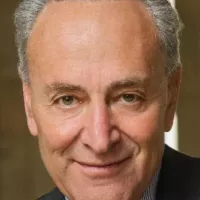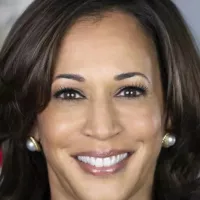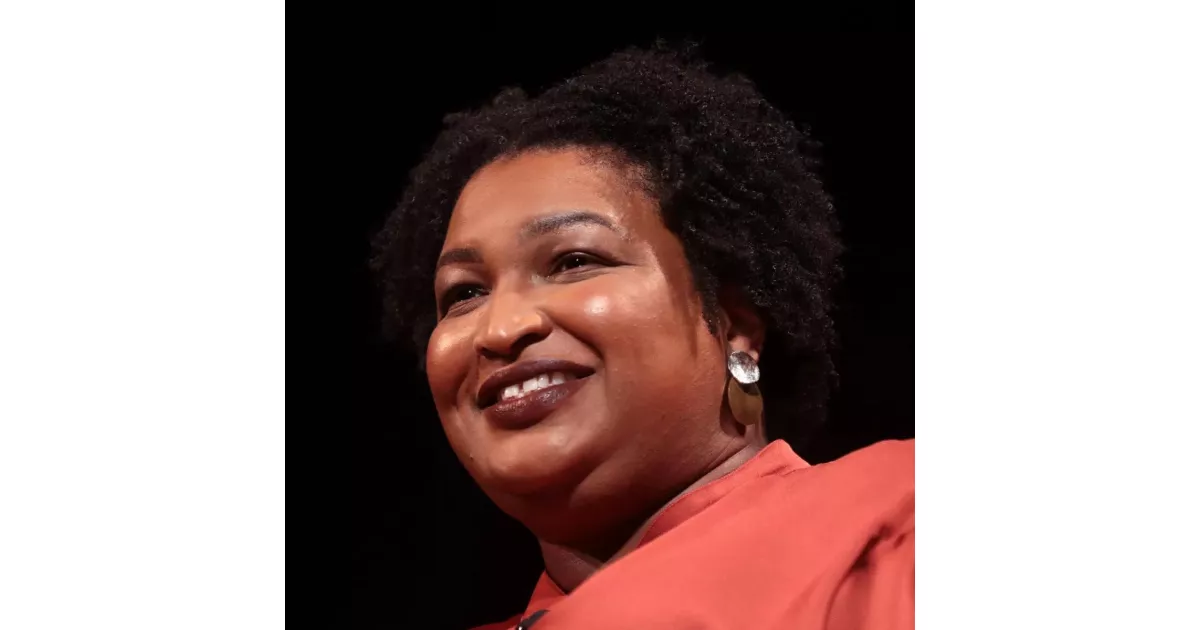Stacey Abrams is an American politician, lawyer, voting rights activist, and author. She served in the Georgia House of Representatives from 2007 to 2017, and as minority leader from 2011 to 2017. A prominent Democrat, Abrams founded Fair Fight Action in 2018, an organization dedicated to combating voter suppression. She is widely recognized for her impactful work in increasing voter turnout in Georgia, particularly in the 2020 presidential election and the 2020-21 Senate elections, which ultimately contributed to Democratic victories.
1956: Confederate battle flag added to state flag
In 1956, the Confederate battle flag was added to the Georgia state flag as an anti-civil rights movement action.
December 9, 1973: Stacey Abrams Born
On December 9, 1973, Stacey Yvonne Abrams was born. She is an American politician, lawyer, voting rights activist, and author.
1989: Moved to Atlanta, Georgia
In 1989, Stacey Abrams' family moved to Atlanta, Georgia, where her parents pursued graduate degrees at Emory University.
1990: Selected for Telluride Association Summer Program
In 1990, Stacey Abrams was selected for the Telluride Association Summer Program.
1991: Attended Spelman College
In 1991, Stacey Abrams began attending Spelman College and was encouraged by president Johnnetta Cole to run for campus office.
1991: Graduated as Valedictorian
In 1991, Stacey Abrams graduated as valedictorian from Avondale High School.
June 1992: Protest at the Georgia Capitol
In June 1992, Stacey Abrams participated in a protest on the steps of the Georgia Capitol, during which she joined in burning the Georgia state flag with the Confederate battle flag.
1994: Named Harry S. Truman Scholar
In 1994, Abrams was a Harry S. Truman Scholar.
1995: Earned Bachelor of Arts from Spelman
In 1995, Stacey Abrams earned a Bachelor of Arts in interdisciplinary studies from Spelman College, magna cum laude.
1998: Obtained Master's of Public Affairs
In 1998, Abrams obtained her Master's of Public Affairs from the University of Texas LBJ School of Public Affairs.
2001: Named one of "30 Leaders of the Future" by Ebony magazine
In 2001, Ebony magazine named Abrams one of "30 Leaders of the Future".
2002: Appointed Deputy City Attorney
In 2002, at age 29, Stacey Abrams was appointed a deputy city attorney for the City of Atlanta.
2004: Named to Georgia Trend's "40 Under 40" list
In 2004, Abrams was named to Georgia Trend's "40 Under 40" list.
2006: Ran for Georgia House of Representatives
In 2006, Stacey Abrams ran for the 84th District for the Georgia House of Representatives and won the Democratic Party primary election with 51% of the vote.
2007: Represented House District 84
In 2007, Stacey Abrams began representing House District 84 in the Georgia House of Representatives.
2007: Georgia House of Representatives
In 2007, Stacey Abrams began serving in the Georgia House of Representatives.
2009: Abrams published her most recent book under pen name Selena Montgomery
In 2009, Abrams published her most recent book under pen name Selena Montgomery.
November 2010: Elected Minority Leader
In November 2010, the Democratic caucus elected Stacey Abrams as minority leader of the Georgia House of Representatives.
2010: Co-founded Nourish, Inc.
In 2010, Stacey Abrams co-founded Nourish, Inc., originally conceived as a beverage company.
2011: Minority Leader
In 2011, Stacey Abrams became the minority leader in the Georgia House of Representatives.
2011: Stopped Tax Increase
In 2011, Stacey Abrams stopped the largest tax increase in Georgia history by arguing against a Republican proposal and demonstrating its negative impact on most Georgians.
2011: Co-sponsored HOPE Scholarship Legislation
In 2011, as minority leader, Stacey Abrams co-sponsored legislation to reform the HOPE Scholarship program, decreasing the scholarship amount and funding a low-interest loan program.
2012: Voter Registrations Canceled
Between 2012 and 2018, Kemp's office canceled over 1.4 million voter registrations.
2012: John F. Kennedy New Frontier Award
In 2012, Abrams received the John F. Kennedy New Frontier Award from the Kennedy Library and Harvard University's Institute of Politics.
2013: Recognized as one of the "100 Most Influential Georgians"
In 2013, Georgia Trend recognized Abrams as one of the "100 Most Influential Georgians".
2013: Represented House District 89
In 2013, following reapportionment, Stacey Abrams began representing House District 89 in the Georgia House of Representatives.
2014: Recipient of the Gabrielle Giffords Rising Star Award
In 2014, EMILY's List recognized Abrams as the inaugural recipient of the Gabrielle Giffords Rising Star Award. She was also named 11th most influential African American aged 25 to 45 by The Root.
2014: Named Public Official of the Year by Governing Magazine
In 2014, Governing Magazine named Abrams a Public Official of the Year.
2015: Deferred 2015 taxes
Abrams deferred her 2015 taxes to help with her family's medical bills.
2015: Recognized as one of the "100 Most Influential Georgians"
In 2015, Georgia Trend recognized Abrams as one of the "100 Most Influential Georgians".
2016: Deferred 2016 taxes
Abrams deferred her 2016 taxes to help with her family's medical bills.
2016: Voter Registrations Purged
Between 2016 and 2017, approximately 534,000 Georgians had their voter registrations purged, with more than 334,000 still living where they were registered.
2016: Pledge to oppose religious liberty bill
In 2016, Abrams pledged to oppose legislation similar to the religious liberty bill that Governor Deal vetoed.
2016: Recognized as one of the "100 Most Influential Georgians"
In 2016, Georgia Trend recognized Abrams as one of the "100 Most Influential Georgians".
July 2017: Voter Registrations Canceled
On a single night in July 2017, half a million voters had their registrations canceled by Kemp's office, with election-law experts suggesting that this "may represent the largest mass disenfranchisement in US history."
August 25, 2017: Resigned from General Assembly
On August 25, 2017, Stacey Abrams resigned from the Georgia General Assembly to focus on her gubernatorial campaign.
2017: Recognized as one of the "100 Most Influential Georgians"
In 2017, Georgia Trend recognized Abrams as one of the "100 Most Influential Georgians".
2017: Voter Registration Purge
In 2017, Kemp purged nearly 670,000 voter registrations, which Abrams argued suppressed turnout.
2017: End of time at Georgia House of Representatives
In 2017, Stacey Abrams ended her time at the Georgia House of Representatives.
April 2018: Revealed debt in op-ed
In April 2018, Abrams wrote an op-ed revealing that she owed $54,000 in federal back taxes and held $174,000 in debt.
April 2018: Publication of "Minority Leader"
In April 2018, Abrams' book "Minority Leader: How to Lead from the Outside and Make Real Change" was published by Henry Holt & Co.
October 2018: Voter Registration Applications on Hold
By early October 2018, more than 53,000 voter registration applications had been put on hold by Kemp's office, with more than 75% belonging to minorities.
November 6, 2018: Lost Gubernatorial Election
On November 6, 2018, Stacey Abrams lost the Georgia gubernatorial election by 54,723 votes.
November 9, 2018: Atlanta Journal-Constitution Investigation Findings
On November 9, 2018, the Atlanta Journal-Constitution reported its investigation found no evidence of systematic malfeasance in the 2018 Georgia elections.
November 16, 2018: Ended Gubernatorial Campaign and Created Fair Fight Action
On November 16, 2018, Stacey Abrams ended her campaign, emphasizing that it was not a concession, and announced the creation of Fair Fight Action, a voting rights nonprofit organization.
December 2018: Fair Fight Lawsuit Initiated
In December 2018, Fair Fight's lawsuit was initiated, including allegations of unreasonably long lines, the impact of voter ID rules, improper maintenance of voter rolls, inadequate training of poll workers, and the integrity of voting machines.
2018: Voter Registrations Canceled
Between 2012 and 2018, Kemp's office canceled over 1.4 million voter registrations.
2018: Featured in "All In: The Fight For Democracy"
In 2018, Abrams was featured in "All In: The Fight For Democracy", a documentary about voter suppression in the United States.
2018: Fair Fight Action Founded
In 2018, Stacey Abrams founded Fair Fight Action, an organization focused on addressing voter suppression.
2018: Ran for Governor of Georgia
In 2018, Stacey Abrams ran for governor of Georgia and won the Democratic nomination, becoming the first Black woman in the U.S. to be a major party's nominee for governor. She was endorsed by Bernie Sanders and Barack Obama.
2018: Democratic Nominee for Governor
In 2018, Stacey Abrams was the Democratic nominee in the Georgia gubernatorial election, becoming the first African-American female major-party gubernatorial nominee in the United States; she lost to Brian Kemp by 1.4%.
2018: Accusations of Voter Suppression
In 2018, during the election between Stacey Abrams and Brian Kemp, Kemp was accused of voter suppression in his role as Georgia's secretary of state. Political scientists and election law experts criticized his actions, raising concerns about voter disenfranchisement and election security.
January 29, 2019: Abrams to deliver response to State of the Union address
On January 29, 2019, Chuck Schumer announced that Abrams would deliver the response to the State of the Union address, making her the first African-American woman to do so.
February 2019: Response to the State of the Union Address
In February 2019, Stacey Abrams became the first African-American woman to deliver a response to the State of the Union address.
April 30, 2019: Abrams declines to run for U.S. Senate in 2020
On April 30, 2019, Abrams announced she would not run for the U.S. Senate in 2020, despite being heavily recruited.
August 17, 2019: Founding of Fair Fight 2020
On August 17, 2019, Abrams announced the founding of Fair Fight 2020, an organization to assist Democrats in building voter protection teams.
2019: Completed payment of back taxes
In 2019, Abrams completed payment of her back taxes to the IRS in addition to other outstanding debts.
2019: Received a vote for Speaker of the U.S. House
In 2019, Abrams received a single vote, from Kathleen Rice, in the election for Speaker of the U.S. House.
2019: Received Distinguished Public Service Award
In 2019, Abrams received the Distinguished Public Service Award from the University of Texas LBJ School of Public Affairs.
2019: Spoke at CFR's Conference on Diversity in International Affairs
In 2019, Abrams spoke at CFR's Conference on Diversity in International Affairs. She also contributed an essay to Foreign Affairs magazine on how identity politics strengthens liberal democracy.
2019: Named most influential African American by The Root
In 2019, Abrams was named first most influential African American aged 25 to 45 by The Root.
June 2020: Publication of "Our Time Is Now"
In June 2020, Abrams' book "Our Time Is Now: Power, Purpose, and the Fight for a Fair America" was published by Henry Holt & Co.
August 11, 2020: Harris announced as Biden's running mate
On August 11, 2020, Kamala Harris was officially announced as Joe Biden's running mate, after Abrams had actively promoted herself for consideration.
December 2020: Fair Fight Dropped Claims About Voting Machines
In December 2020, Fair Fight dropped the claims about voting machines.
2020: Abrams declines to run for U.S. Senate
In 2020, Abrams declined to run for U.S. Senate after Senator Johnny Isakson announced his resignation, citing a need to focus on ending voter suppression.
2020: Investigation into Georgia Democratic Party
In 2020, Kemp's office announced that it was investigating the Georgia Democratic Party for unspecified "possible cybercrimes", later investigation concluded that there was no evidence of computer crimes.
2020: Bloomberg contributes to Fair Fight 2020
In 2020, Michael Bloomberg contributed $5 million to Fair Fight 2020, after which Abrams defended his spending.
2020: Boosted Voter Turnout in Georgia
In 2020, Stacey Abrams' efforts were credited with boosting voter turnout in Georgia, including in the presidential election where Joe Biden won the state and in the U.S. Senate elections.
2020: Abrams credited with boosting Democratic votes in Georgia
In 2020, after Biden won the U.S. presidential election, Abrams was credited with boosting Democratic votes in Georgia and new voter registrations. She also served as an elector for the state of Georgia.
February 2021: Federal Judge Ruled on Fair Fight's Claims
In February 2021, a federal judge ruled that Fair Fight's claims about voting machines, voter list security, and polling place issues were resolved by changes in Georgia's election law, or invalidated due to lack of standing to sue.
April 2021: Claims in legal challenge allowed to proceed
In April 2021, a judge allowed some claims in the legal challenge to proceed while rejecting others in the Fair Fight lawsuit.
May 11, 2021: Release of "While Justice Sleeps"
On May 11, 2021, "While Justice Sleeps" by Stacey Abrams was released under her real name.
May 2021: Publication of "While Justice Sleeps"
In May 2021, Abrams' legal thriller "While Justice Sleeps" was published under her own name.
December 1, 2021: Abrams announces run for Georgia governor
On December 1, 2021, Abrams announced she would run again for governor of Georgia.
December 2021: Release of "Stacey's Extraordinary Words"
In December 2021, Stacey Abrams released a children's book called "Stacey's Extraordinary Words".
2021: Nomination for Nobel Peace Prize and inclusion in Time 100
In 2021, Abrams was nominated for a Nobel Peace Prize and included in the Time 100, Time's annual list of the 100 most influential people in the world.
2021: Nominated for Primetime Emmy Award
In 2021, Abrams was nominated for the Primetime Emmy Award for Outstanding Character Voice-Over Performance for her work on Black-ish.
2021: Now raised Series A
In 2021, Now raised a $9.5 million Series A.
May 24, 2022: Abrams ran unopposed in the Democratic primary
On May 24, 2022, Abrams ran unopposed in the Democratic primary and faced Georgia governor Brian Kemp in the November 8 general election.
October 2022: Federal judge rules against Fair Fight
In October 2022, a federal judge ruled against Fair Fight on remaining claims, stating that Georgia's voting regulations did not violate the Constitution or the Voting Rights Act.
November 8, 2022: Abrams loses election to Kemp
On November 8, 2022, Abrams lost the election to Kemp and conceded that night.
2022: Lost Gubernatorial Election
In 2022, Stacey Abrams was the Democratic nominee in the Georgia gubernatorial election, and lost to Brian Kemp by a margin of 7.5%.
March 2023: Hired as Senior Counsel
In mid-March 2023, Rewiring America announced it had hired Stacey Abrams as senior counsel.
April 5, 2023: Appointed to the Ronald W. Walters Endowed Chair
On April 5, 2023, Howard University announced the appointment of Abrams to the inaugural Ronald W. Walters Endowed Chair for Race and Black Politics.
Mentioned in this timeline

Donald John Trump is an American politician media personality and...

Chuck Schumer is the senior United States Senator from New...

Selena Quintanilla-P rez known as Selena was an influential American...

John F Kennedy JFK was the th U S President...

Kamala Harris is an American politician and attorney She served...

Joe Biden is an American politician who served as the...
Trending

39 minutes ago Storm Causes Power Outages Across Central Coast and SLO County, Bringing Down Trees

2 hours ago Iva Jovic triumphs over Rakhimova in Dubai, reveals Pegula observation.

2 hours ago Andreeva vs. Cristian: WTA Dubai 2026 Prediction, Odds, and Match Preview.

2 hours ago Mirra Andreeva embraces attention, aims Dubai title defense, draws inspiration from LeBron James.

3 hours ago Severe Thunderstorm Warning Issued for Central California; Funnel Clouds Possible, Gusty Showers Expected

3 hours ago Iva Jovic Observed Jessica Pegula; Jovic Wins in Dubai First Round.
Popular

Jesse Jackson is an American civil rights activist politician and...
Randall Adam Fine is an American politician a Republican who...

Pam Bondi is an American attorney lobbyist and politician currently...

Barack Obama the th U S President - was the...

Kid Rock born Robert James Ritchie is an American musician...

XXXTentacion born Jahseh Dwayne Ricardo Onfroy was a controversial yet...




